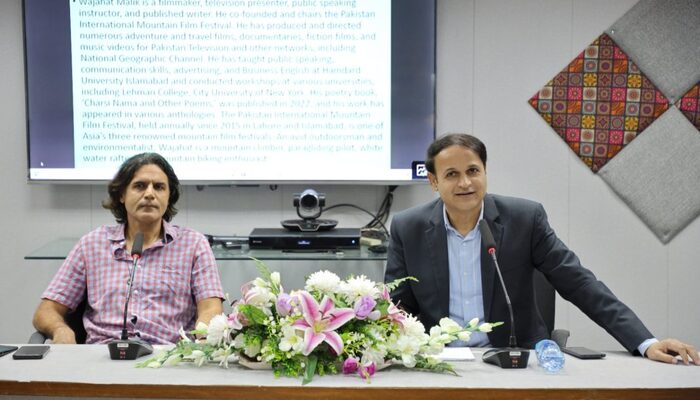The keyword responsible tourism took center stage at a seminar hosted by the Pakistan Institute of Development Economics (PIDE) on Wednesday in Islamabad. Titled “Climate Change and Responsible Tourism in Pakistan,” the event shed light on the country’s growing climate crisis and the urgent need to transform the tourism sector into a force for environmental protection.
Pakistan’s Vulnerability to Climate Shocks
Pakistan ranks among the top 10 most climate-vulnerable nations globally. From melting glaciers and flash floods to erratic weather and rising temperatures, the country is facing fast-accelerating climate consequences. The northern regions, heavily reliant on tourism for income, have become particularly fragile, with both lives and livelihoods at risk.
Tourism: A Double-Edged Sword
Keynote speaker Wajahat Malik, a renowned documentary filmmaker and Managing Director of EyeBex, stressed that tourism can either damage or help preserve the environment. He explained how unmanaged mass tourism contributes to deforestation, carbon emissions, and the overuse of natural resources. On the other hand, responsible tourism offers a path to education, sustainability, and local empowerment.
Read: Heavy Rains in Punjab Leave Nine Dead, Dozens Injured
Severe Impact on the Tourism Sector
The seminar detailed how climate change is already affecting Pakistan’s tourism infrastructure. Flash floods and glacial lake outbursts have destroyed roads, hotels, and hiking routes. Disrupted weather patterns have shortened travel seasons and reduced tourist arrivals. Natural disasters like landslides and GLOFs have increased safety concerns for visitors.
Additionally, overcrowding during peak tourist months strains limited local water supplies and harms fragile ecosystems. The degradation of scenic beauty and biodiversity has also lowered the overall tourist experience in once-pristine areas.
Call for a New Approach to Tourism
Malik urged a radical shift in how tourism is practiced in Pakistan. He pointed out that the root of the climate crisis lies in unsustainable human activity. “Mass tourism leaves behind waste, pollution, and destruction,” he said. “Responsible tourism is not a luxury—it’s a necessity.”
He laid out practical steps for change. These include avoiding litter, reducing single-use plastic, staying on marked trails, supporting local businesses, and choosing eco-friendly transport. He also urged travelers to learn about the local culture and environment before their visits.
Policy Reforms and Infrastructure Investment Needed
Speakers at the event emphasized the critical role of government in shaping sustainable tourism. They called for regulatory reforms to manage overcrowded tourist sites, investment in resilient infrastructure, and public awareness campaigns. They also stressed the need for climate education targeting both visitors and host communities.
The seminar highlighted that policies must focus on making tourism a contributor to climate resilience, rather than a source of harm. Without this transformation, the long-term viability of tourism in Pakistan is at risk.
A Collective Responsibility
Wajahat Malik concluded with a stark reminder: “Tourism is not just recreation—it’s political and environmental.” He called on all stakeholders—governments, tour operators, communities, and citizens—to take collective responsibility. Only by embracing climate-conscious practices and strategic reforms can Pakistan protect its natural heritage and reimagine tourism as a tool for sustainable development.
Follow us on Instagram, YouTube, Facebook,, X and TikTok for latest updates
